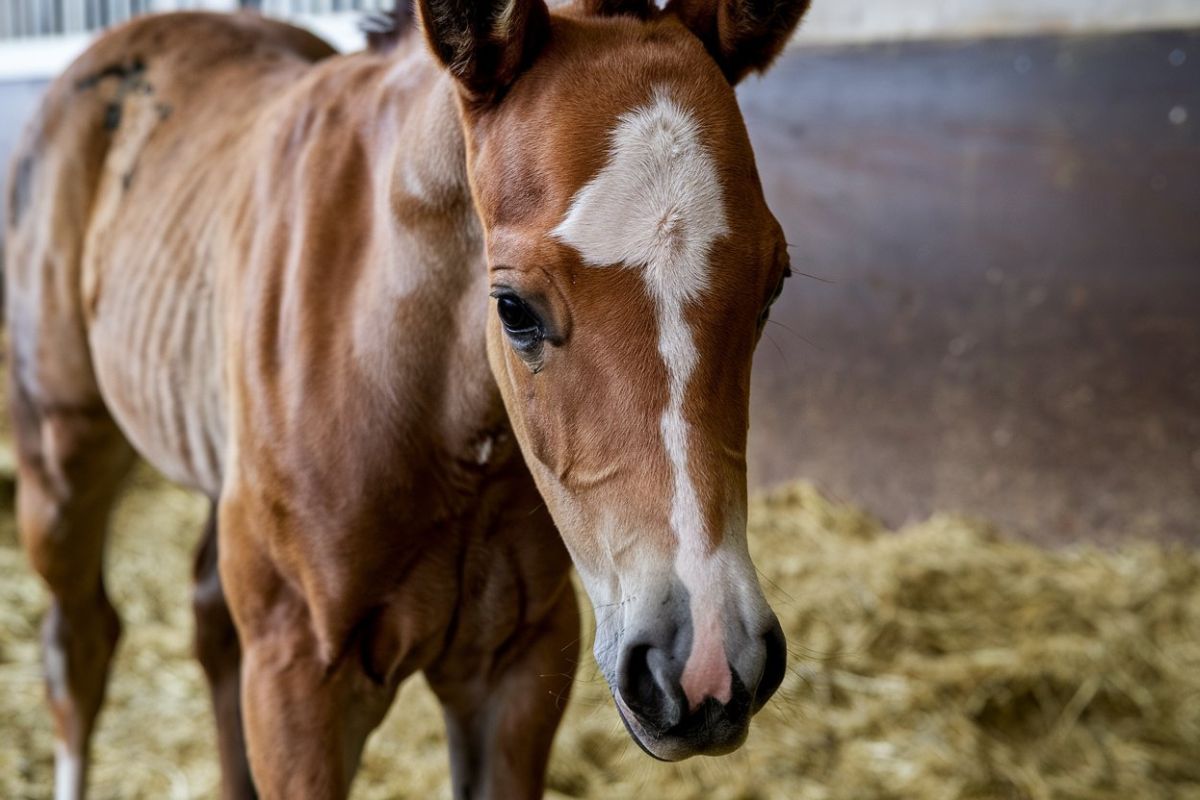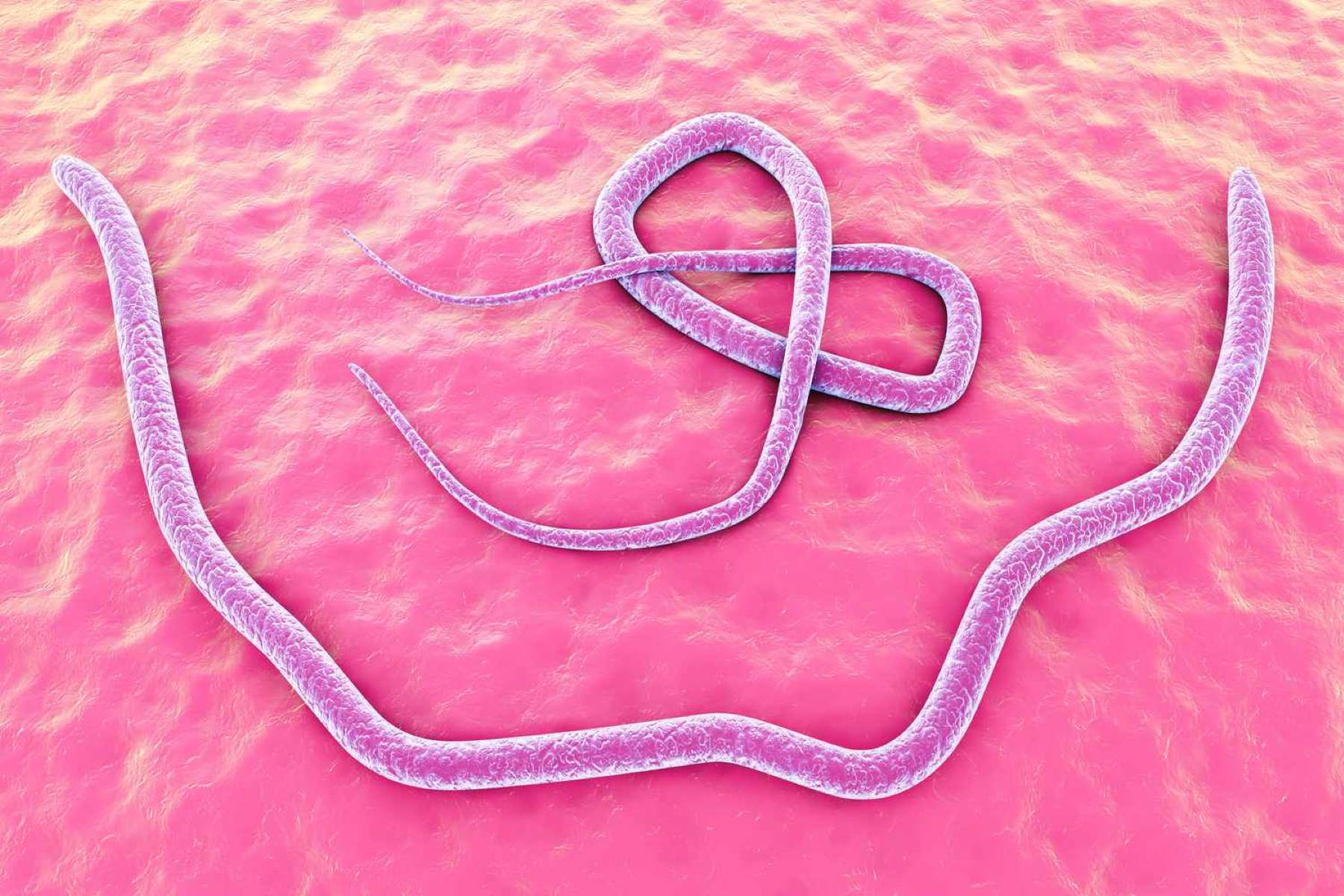
What is Foal Immunodeficiency Syndrome (FIS)? Foal Immunodeficiency Syndrome is a fatal genetic disorder affecting Fell and Dales pony breeds. This condition, inherited in an autosomal recessive manner, leads to severe anaemia and a compromised immune system in foals. Affected foals appear healthy at birth but soon develop symptoms like weakness, lethargy, poor growth, and breathlessness. The primary issue lies in the drastic reduction of B lymphocytes, crucial for immune function, making these foals highly susceptible to infections. With no curative treatment available, affected foals usually die or are euthanized before 16 weeks of age. Genetic testing and selective breeding have significantly reduced FIS cases.
What is Foal Immunodeficiency Syndrome?
Foal Immunodeficiency Syndrome (FIS) is a genetic disorder that affects certain pony breeds. It’s a serious condition with a high mortality rate, making it a significant concern for breeders and veterinarians.
-
Definition and Prevalence: FIS is an inherited autosomal recessive condition causing fatal anaemia and a compromised immune system in Fell ponies and, to a lesser extent, Dales ponies.
-
Clinical Signs: Affected foals seem normal at birth but develop severe anaemia and infections within weeks. Symptoms include weakness, lethargy, poor growth, breathlessness, reduced appetite, diarrhoea, and pale gums.
How Does FIS Affect the Immune System?
The immune system of foals with FIS is severely compromised, making them highly susceptible to infections.
-
Immune System Compromise: The primary issue is a severe reduction in B lymphocytes, essential white blood cells for immune function. This leads to reduced immunoglobulin production, increasing vulnerability to infections.
-
Anaemia: Affected foals suffer from profound anaemia, characterized by abnormally low levels of red blood cells. This impairs oxygen transport, worsening their health.
Genetic Basis and Carrier Rates
Understanding the genetic basis of FIS is crucial for managing and preventing the condition.
-
Genetic Basis: FIS is caused by a specific genetic mutation inherited in an autosomal recessive manner. Both parents must be carriers for their offspring to be affected.
-
Carrier Rate: In the Fell pony breed, up to 50% of adults are carriers of the defective gene. This high carrier rate increases the likelihood of producing affected foals.
Diagnosing and Treating FIS
Diagnosing FIS early can help manage the condition, although there is no cure.
-
Diagnosis: Diagnosis is often made post-mortem, but clinical signs and breed predisposition can suggest FIS in young foals. The most definitive test is DNA testing for the genetic mutation.
-
Treatment and Prognosis: No curative treatment exists for FIS. Supportive care, like antibiotics for secondary infections, may prolong life but doesn’t change the fatal outcome. Affected foals usually die or are euthanized before 16 weeks of age.
Impact on Welfare and Historical Context
FIS has a significant impact on the welfare of affected foals and has been a known issue for decades.
-
Impact on Welfare: Affected foals experience progressive anaemia and lethargy, leading to poor quality of life. They are also more prone to infections, further compromising their welfare.
-
Historical Context: FIS was first reported in Fell ponies in 1997. Since then, research has focused on understanding the genetic basis and developing diagnostic tools.
Research and Development
Research has played a crucial role in identifying the genetic mutation responsible for FIS and developing tools to manage it.
-
Research and Development: The University of Liverpool identified the genetic mutation responsible for FIS. This research led to the development of a carrier test, reducing the incidence of FIS in affected breeds.
-
Screening Programs: Screening programs were implemented to test for carriers in the Fell and Dales pony breeds. This proactive approach has significantly reduced the number of cases, with only one case detected in any breed in 2012.
Spread to Other Breeds and Genetic Tools
FIS has spread to other breeds, highlighting the importance of continued surveillance and testing.
-
Spread to Other Breeds: Initially identified in Fell and Dales ponies, FIS has spread to other breeds, including Coloured ponies and Cob ponies. Continued surveillance and testing are essential.
-
Genetic Tools: Sequencing the equine genome has provided tools to identify genetic mutations at high resolution. This has enabled researchers to pinpoint the specific genetic defect causing FIS, facilitating the development of diagnostic tests.
Carrier Identification and Eradication Efforts
Identifying carriers and implementing selective breeding programs are key to eradicating FIS.
-
Carrier Identification: The carrier test allows breeders to identify symptom-free carriers of the defective gene. This information is crucial for designing selective breeding programs aimed at eradicating FIS.
-
Eradication Efforts: Since the introduction of the carrier test in 2010, there has been a significant reduction in FIS cases. This demonstrates the effectiveness of genetic testing in controlling the spread of this fatal disease.
Impact on Equine Welfare and Research Funding
Eradicating FIS improves equine welfare and has been supported by various organizations.
-
Impact on Equine Welfare: Reducing the incidence of FIS ensures more foals survive and thrive, improving overall welfare standards within the affected breeds.
-
Research Funding: Research into FIS has been supported by organizations like The Horse Trust, Fell Pony 2000, and the Petplan Charitable Trust. These funds have advanced our understanding of the disease and developed diagnostic tools.
Genetic Mutation Identification and Future Directions
Identifying the genetic mutation has been crucial, and ongoing research is necessary to maintain progress.
-
Genetic Mutation Identification: Researchers identified a specific SNP at 30,660,224 bp that segregated as expected for a causal recessive mutation. This precise identification has been crucial for developing effective diagnostic tests.
-
Future Directions: Continued research into FIS is essential for ensuring the disease remains under control. Ongoing genetic studies and surveillance programs will help maintain the low incidence rates achieved through carrier testing and selective breeding programs.
The Path Forward
Foal Immunodeficiency Syndrome (FIS) is a serious genetic disorder affecting Fell and Dales ponies. This condition leads to severe anaemia and a weakened immune system, making affected foals highly susceptible to infections. With no cure available, affected foals often die or are euthanized before reaching 16 weeks of age. Thanks to research, the genetic mutation causing FIS has been identified, allowing for DNA testing to detect carriers. Breeders can now use this information to make informed breeding decisions, significantly reducing the incidence of FIS. Continued vigilance and genetic testing are essential to keep this fatal disease at bay. By understanding and addressing FIS, we can improve the welfare of these beloved pony breeds, ensuring healthier futures for generations to come.
Was this page helpful?
Our commitment to delivering trustworthy and engaging content is at the heart of what we do. Each fact on our site is contributed by real users like you, bringing a wealth of diverse insights and information. To ensure the highest standards of accuracy and reliability, our dedicated editors meticulously review each submission. This process guarantees that the facts we share are not only fascinating but also credible. Trust in our commitment to quality and authenticity as you explore and learn with us.


